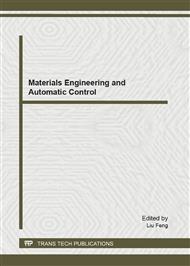p.1977
p.1982
p.1986
p.1990
p.1994
p.1998
p.2002
p.2007
p.2011
Optimization Design of Marine Waste Heat Recovery System Based on PSO-GA Algorithm
Abstract:
Energy saving is the best way to energy exploitation and environment protection, especially in the case of the low carbon economy. In this paper, a hybrid approach combining particle swarm optimization (PSO) and genetic algorithms (GA) is developed for optimization design of marine waste heat recovery system. Based on exergy analysis method, the waste heat utilization degree of the marine waste heat recovery system is discussed. Considering the superheated steam temperature, evaporation temperature, economizer inlet temperature, water supply temperature and condensation temperature, a mathematical model is constructed in which the exergy efficiency of marine waste heat recovery system is taken as the objective function for optimization design of marine waste heat recovery system. The mutation operator of GA is introduced to the PSO to solve the mathematical model of marine waste heat recovery system for the diversity of particles. The effectiveness of the approach is illustrated by an optimization example.
Info:
Periodical:
Pages:
1994-1997
Citation:
Online since:
August 2012
Authors:
Price:
Сopyright:
© 2012 Trans Tech Publications Ltd. All Rights Reserved
Share:
Citation:


